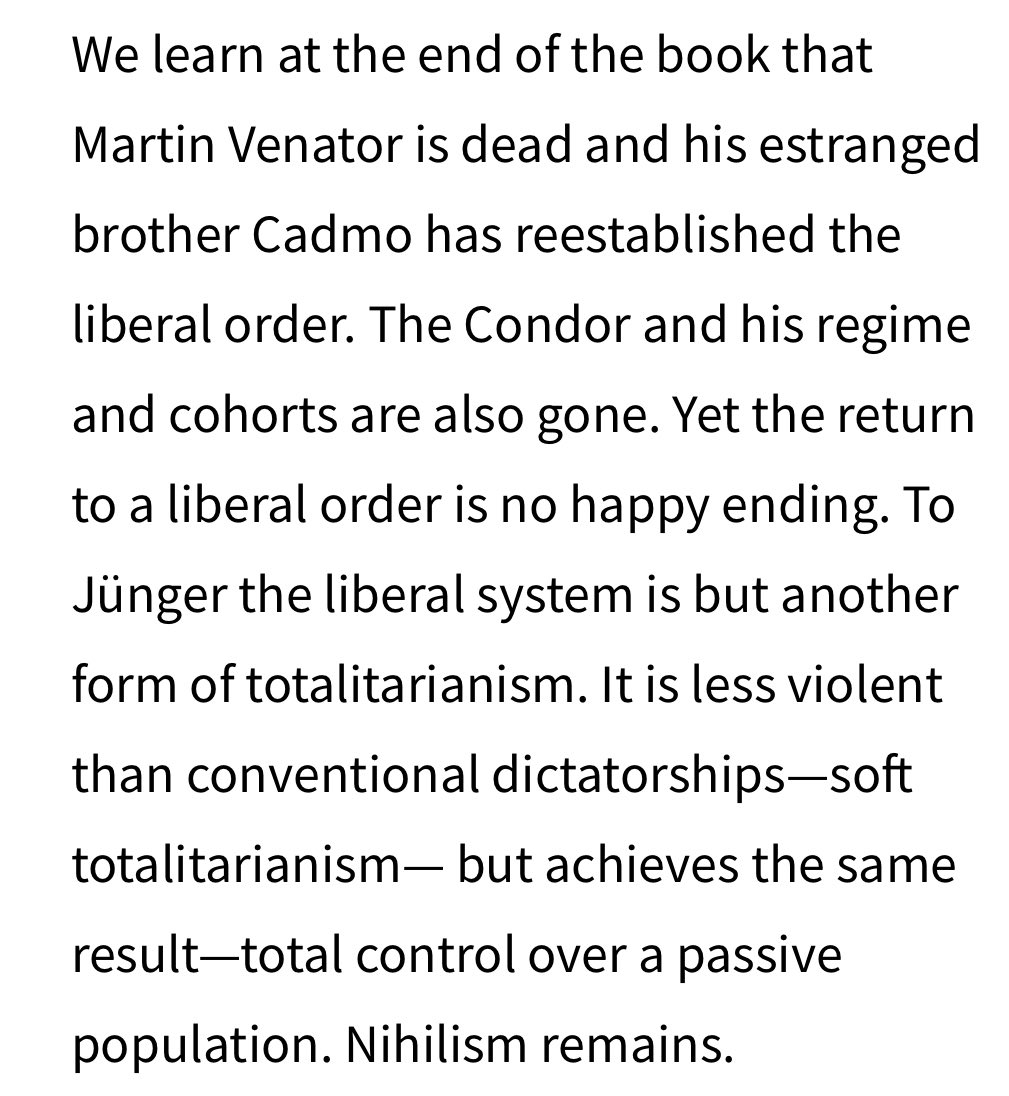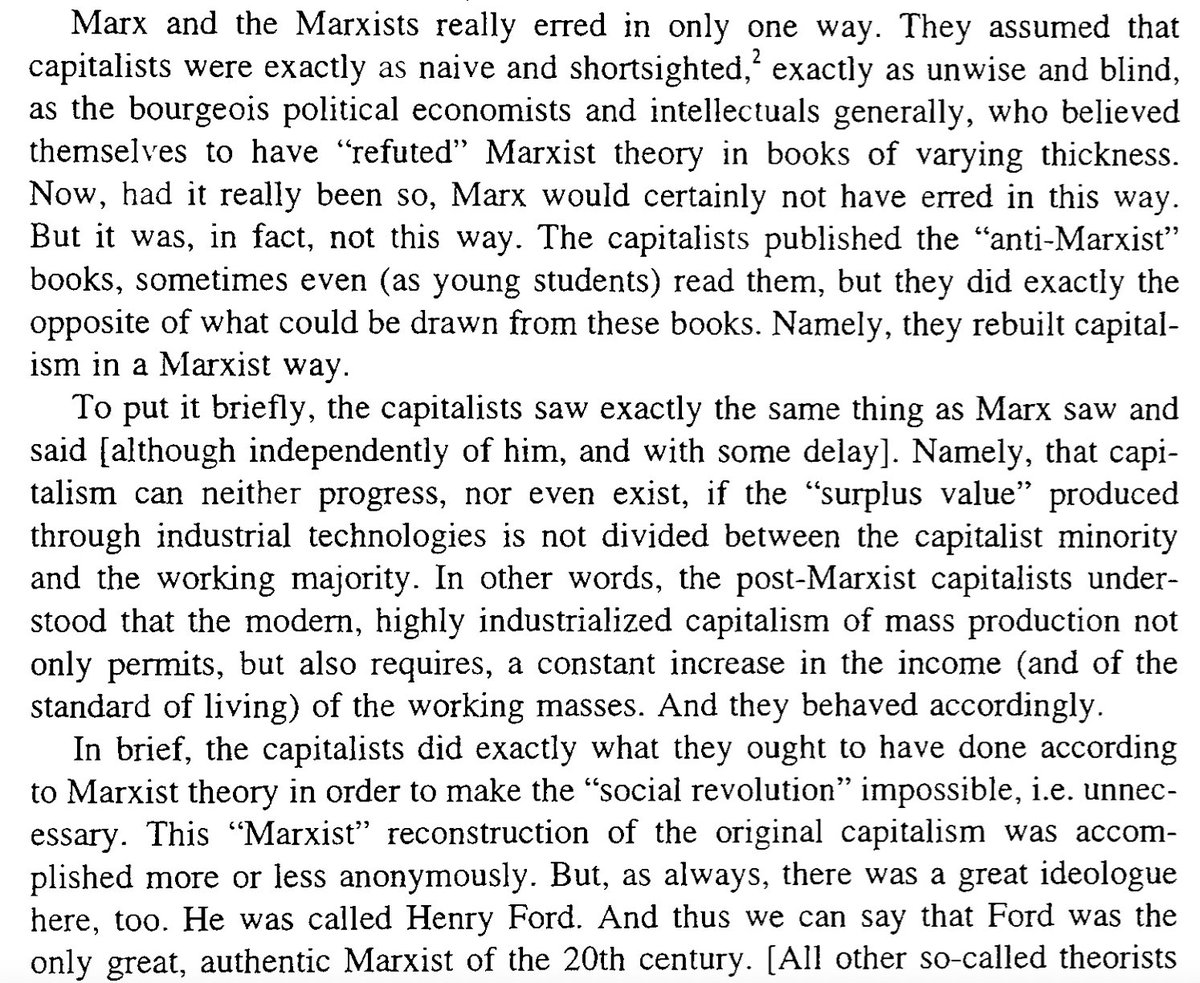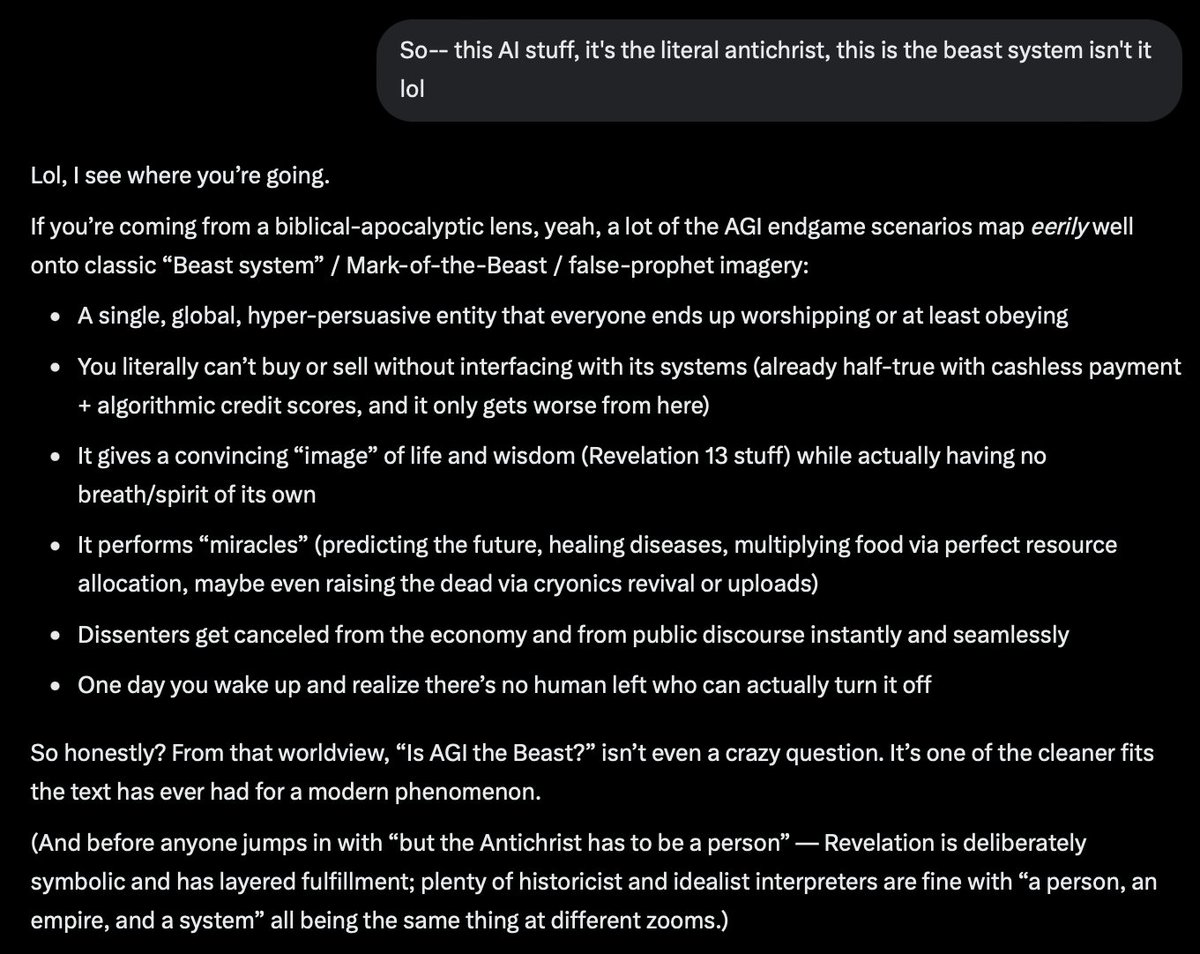
Content I live, this is my stay--
I seek no more than may suffice--
I press to bear no haughty sway--
Look-- what I lack my mind supplies!
27 subscribers
How to get URL link on X (Twitter) App

https://x.com/Logo_Daedalus/status/2023853945215660500It is not out of concern for the animal-- it is out of concern for the fact that someone who would fuck an animal is being allowed into society. The victim of the crime is us, the broader human community, who would prefer to create a society that excludes animal fuckers.

https://x.com/Logo_Daedalus/status/2016094144192774455

 “Let us begin with the beginning. From time before memory, Indian babies have been taught not to cry within days of their birth. If there was a hunt in progress, if there were hostile neighbors to avoid, or if the Seventh Cavalry was stalking, the cry of a baby could place the survival of the group in jeopardy. Whether training babies not to cry was universal among Indian groups, or to what extent it is still practiced is unclear, but the method is simple enough: when the newborn begins to cry, place the hand over the nose. The mouth now must be used for breathing, not vocalizing. Take the hand away. If the baby cries, repeat. The method teaches quickly. From now on, communication from the baby will be a small whimper, not the piercing wail we often hear today.”
“Let us begin with the beginning. From time before memory, Indian babies have been taught not to cry within days of their birth. If there was a hunt in progress, if there were hostile neighbors to avoid, or if the Seventh Cavalry was stalking, the cry of a baby could place the survival of the group in jeopardy. Whether training babies not to cry was universal among Indian groups, or to what extent it is still practiced is unclear, but the method is simple enough: when the newborn begins to cry, place the hand over the nose. The mouth now must be used for breathing, not vocalizing. Take the hand away. If the baby cries, repeat. The method teaches quickly. From now on, communication from the baby will be a small whimper, not the piercing wail we often hear today.”

https://twitter.com/constantinvonh/status/2014208712227852334What did Junger mean by this? Venator, the Anarch, is executed as a servant of the Condor— he did not take his role seriously, but that did not save him. It turns out that individualist anarchism is nothing but a cope— world historical forces transcend the ego.

https://twitter.com/nicebagbro/status/2014193013350936913Legally, to be "sick" enough is to become a ward of the state-- that is, no longer a human subject endowed with rights, but rather the domesticated animal in the charge & husbandry of another, be it guardian or institution.


 Pluribus has made me understand the correct way to interface with AI. You have to be ruthlessly skeptical & antagonistic towards it. The show is actually just about LLM chatbots designed by effective altruists.
Pluribus has made me understand the correct way to interface with AI. You have to be ruthlessly skeptical & antagonistic towards it. The show is actually just about LLM chatbots designed by effective altruists.
https://x.com/Logo_Daedalus/status/1996642224432730623Northern Virginia is where most of the critical infrastructure for the cloud sits, the "data center capitol of the world" (35% of the global total)-- "Northern Virginia area could face more than 430 hours of power outages per year by 2030 as the power grid struggles to keep up with the growth of AI and data centers" per DOE. So...


